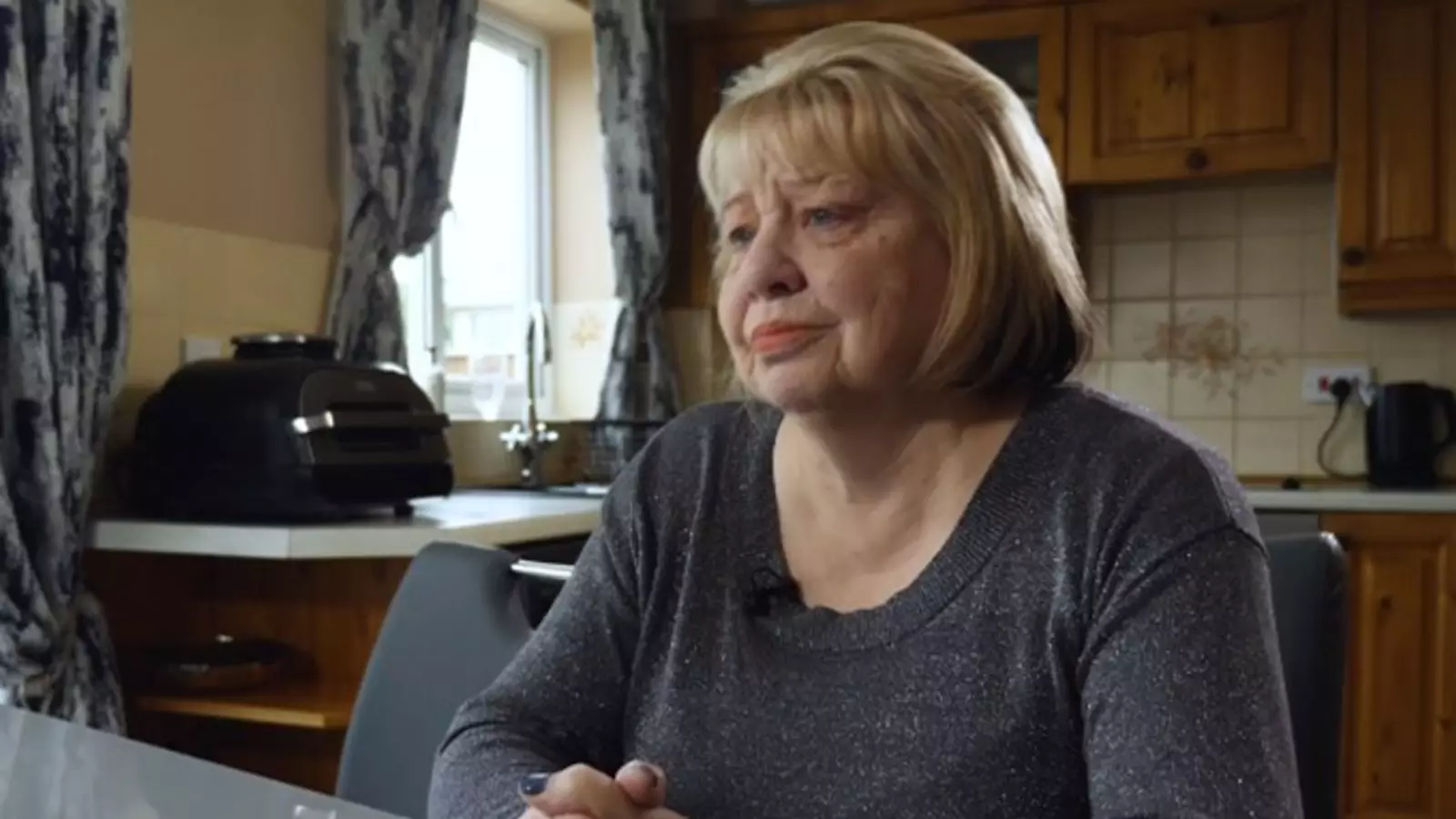Diane Edwards stands at a crossroads in her life, grappling with the profound grief that accompanies the loss of a loved one. Just ten days after the death of her ex-husband, Mick, Diane shares her experiences with the media, recounting not only the emotional toll of her loss but also the harrowing reality of the healthcare system that surrounded them during his battle with terminal bowel cancer.
Her poignant memories of her husband reflect not only a personal tragedy but also the systematic failures that so often accompany critical medical care. “This isn’t the same person you knew or were married to,” she states, highlighting a painful shift in identity that illness can impose—not only on patients but also on their loved ones. The exhaustion of caregiving, entwined with the grief of impending loss, paints a vivid picture of the myriad challenges faced by families in similar predicaments.
Mick, who suffered from blindness alongside his serious diagnosis, required significant support to navigate his home and daily life. Diane notes that while care and charity staff were made available, their training was insufficient for the medical needs of her husband. This lack of skilled support left her feeling increasingly overwhelmed and unsupported, capturing a critical flaw in the healthcare system designed to assist patients in their most vulnerable moments.
“The tears were rolling down my cheek; sometimes, I didn’t know I was crying,” she reflects, summing up the emotional exhaustion that accompanied her role as a caregiver. Diane’s narrative shines a light on the all-too-common scenario where emotional and physical support systems break down just when they are needed most, leaving families to fend for themselves amidst overwhelming situations.
The story takes a turn as Mick’s need for care transitions into a complex bureaucratic challenge. After a hospital stay, he was offered a fast-track care package known as NHS Continuing Healthcare (CHC), which is intended for individuals with substantial medical and social care needs. However, the subsequent assessment process raised serious concerns for Diane, as it appeared to lack the compassion and personalized approach necessary for such sensitive situations.
Mick’s remote assessment—conducted without family present—brought additional layers of frustration and dismay. “He couldn’t cope with a video link,” Diane recalls, emphasizing Mick’s declining confidence and deteriorating health. This lack of face-to-face interaction, especially in a moment of critical assessment, epitomizes a disconnect where protocol overrides personal connection, leaving families in despair over medical decisions made in their absence.
According to the Shropshire, Telford and Wrekin NHS Trust, assessments are conducted in accordance with a national framework, suggesting an institutional understanding of individual needs. However, the reality of CHC assessments reveals a troubling inconsistency, with research indicating significant disparities in care eligibility across different regions. This inconsistency not only affects access to essential healthcare but also raises questions about fairness and equality within the system.
The findings from Nuffield Trust highlight the pressing need for reform in the social care system, illustrating how systemic challenges can create a ‘postcode lottery’ in access to care. Rachel Hutchings, a fellow at Nuffield Trust, underscores the urgency for long-term solutions amidst a backdrop of immediate crises within the sector. Families like Diane’s bear the brunt of these systemic failures, often navigating a labyrinth of assessments and funding challenges just to secure basic care for their loved ones.
Ultimately, Mick’s situation serves as a grim illustration of how the healthcare system can fail patients during their most vulnerable moments. Following intervention from a local social worker and GP, Mick’s CHC funding was reinstated, but the damage had already been done. Diane’s belief that her husband would have opted for assisted dying had it been available underscores the profound implications of medical and ethical dilemmas faced by patients at the end of life.
As Diane reflects on her husband’s last days, her story raises critical questions about the current state of healthcare—one that, too often, prioritizes process over compassion. In recounting her experience, she calls for a re-evaluation of how systems approach care, raising awareness of the urgent need for reform in elder and end-of-life care. The complexities of these experiences reveal not only the fragility of life but also the critical importance of human connection and comprehensive support within our healthcare systems.


Leave a Reply